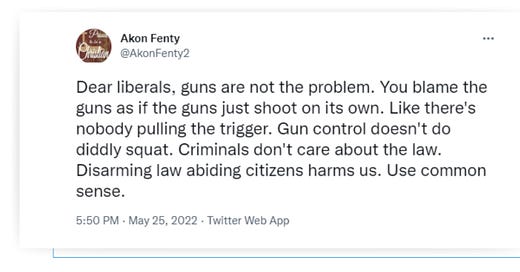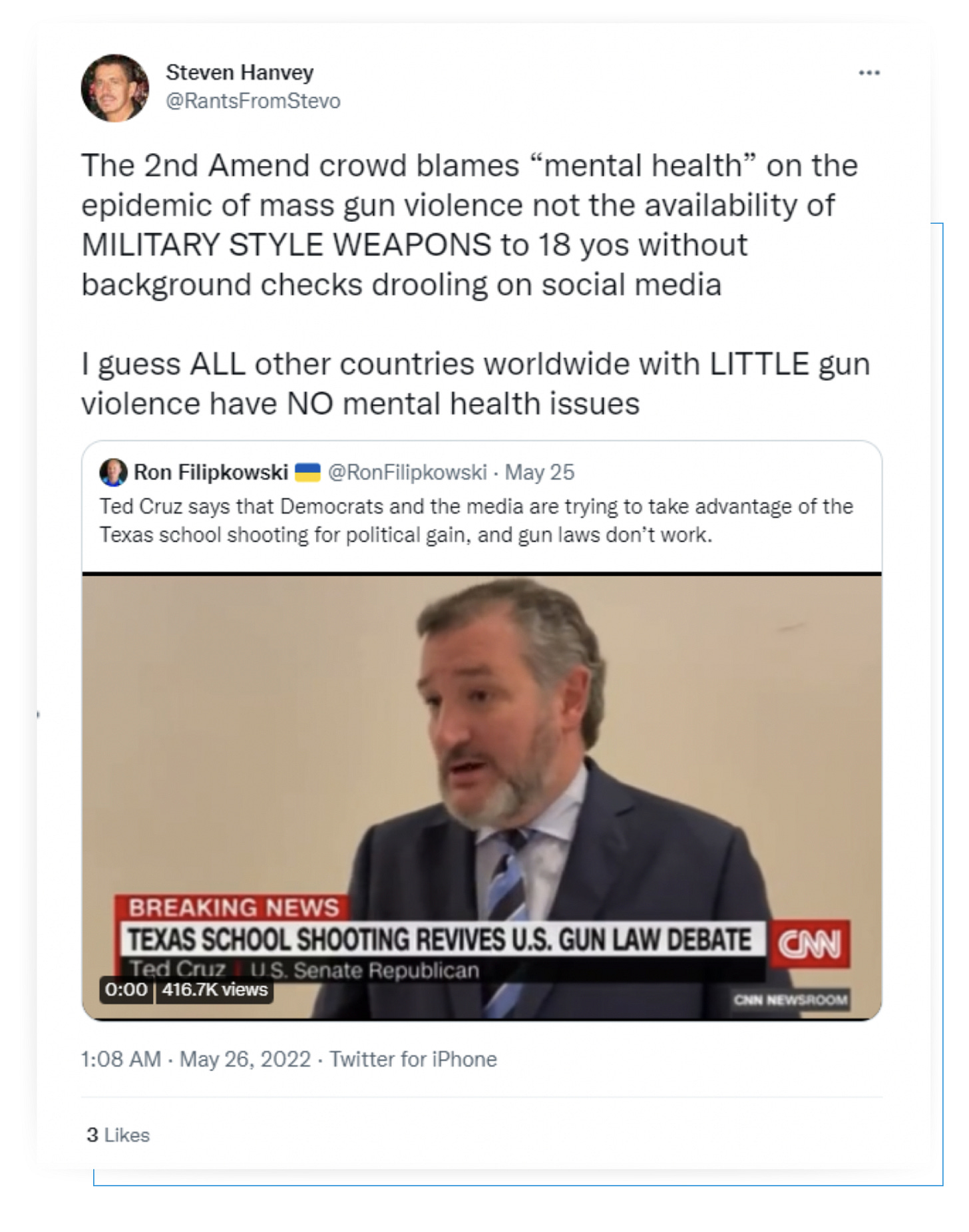What’s Really to Blame For Mass Shootings? We Look at How Democrats and Republicans Frame the Issue.
We took a look at the online discourse in the wake of the shootings in Uvalde, Texas, and Buffalo, New York.
THE BIG TAKEAWAY: Columbine. Virginia Tech. Sandy Hook. Buffalo. Pulse Nightclub. Uvalde. These are only a handful of mass shootings that rocked communities across the United States over the last couple of decades. Wealthy, poor, White, Black, Latinx, or LGBTQ+ — hundreds of families have encountered the unimaginable due to gun violence. Places of work, learning, and leisure are no longer safe havens but places where a gunman can kill dozens within a matter of minutes using an automatic weapon.
But what or who is to blame for these mass killings? We take a closer look to see what Democrats and Republicans are saying online.
SHIFTING BLAME: Even in the wake of a terrible tragedy like Uvalde and Buffalo, gun violence remains one of the most divisive political issues.
Republicans are quick to blame mental health when framing up gun violence. They blame the criminals themselves and not weapons.
But here’s a fact— studies show gun homicide rates in the U.S. are 25 times higher than in other high-income countries with similar rates of mental illness. It’s also misguided to blame mass shootings on mental health alone when diagnoses outpace mass shootings. 50% of people will be diagnosed with a mental health disorder in their lifetime, according to the CDC.
The “mental health” talking point is a mere distraction from taking action on gun control. Instead, our insights show Republicans continue to defend the 2nd Amendment and call for increased law enforcement.
We found Democrats, on the other hand, are nearly three times more likely than Republicans to participate in discussions about gun violence with strong calls for gun control legislation.
But these conversations about gun control on both sides of the aisle are short-lived.
A CLOSER LOOK: When we looked at discussions around gun violence after mass shootings, a clear pattern emerges. An immediate spike in attention lasts 4 to 5 days, and commentary returns to normal.
Chatter about gun control legislation and the 2nd Amendment usually spikes following mass shootings, and discussion about these critical issues dwindles outside of these tragedies.
THE BOTTOM LINE: The data tells a hard truth: There’s no way to time the gun control conversation. Sooner or later — usually sooner — the discourse always flames out following mass shootings. If you want to make a difference to save lives, you can’t get caught up in cycles of outrage. It’ll take less talk and more action: the hard work of political organizing and legislating at any level where change is still possible.
If you’re already doing that work, thank you. We’re with you in this fight..








